Despite Colin Powell’s presentation and the U.S. media’s embrace of it, every other nation on the Security Council, with the exception of Britain and Spain, was highly skeptical of the U.S. argument for war, including allies Germany and France.
By Joe Lauria
Special to Consortium News
July 18, 2020
 On the morning of Feb. 5, 2003 I was in my office, an old radio booth overlooking the Trusteeship Council at U.N. Headquarters in New York, when I decided to walk over one chamber towards the Security Council. I entered a corridor on the left, high above the council, and went into an empty interpreter’s booth. I looked down on the scene below.
On the morning of Feb. 5, 2003 I was in my office, an old radio booth overlooking the Trusteeship Council at U.N. Headquarters in New York, when I decided to walk over one chamber towards the Security Council. I entered a corridor on the left, high above the council, and went into an empty interpreter’s booth. I looked down on the scene below.
The space was packed, the first time I’d seen the public gallery full in the 13 years to that point that I had covered the U.N. The palpable tension in the air was what one might expect before a bullfight.
I could see the then U.S. secretary of state, Colin Powell, in the crowd near his seat at the council’s horseshoe table, conversing with other diplomats. I then went back to my office to watch the U.N. feed as the proceedings commenced.
The secretary of state put on a performance punctuated by a photograph that went around the world and which I immediately dubbed Powell’s “vile display.” It showed him at the Security Council table holding up what he said was a model vial of anthrax, a deadly biological weapon that Powell claimed Iraqi leader Saddam Hussein had an ample supply of.
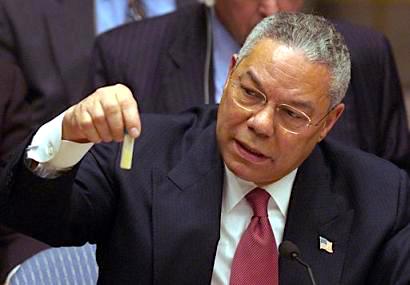
Powell’s “vile display” at Security Council with C.I.A. Director George Tenet behind him. (US Government)
“My … purpose today is to provide you with additional information, to share with you what the United States knows about Iraq’s weapons of mass destruction, as well as Iraq’s involvement in terrorism, which is also the subject of Resolution 1441 and other earlier resolutions,” Powell began. Resolution 1441, passed by the Security Council three months earlier, had given Iraq one last chance to come clean with the U.N.’s WMD weapons inspectors or face “serious consequences.”
“My colleagues, every statement I make today is backed up by sources, solid sources,” Powell told the council. “These are not assertions. What we are giving you are facts and conclusions based on solid intelligence.”
The ‘Facts’
Among the “facts” and “solid intelligence” Powell claimed were Iraq’s procurement of the now infamous aluminum tubes he said were to be used in centrifuges as part of Saddam’s effort to restart a nuclear weapons program.
“These illicit procurement efforts show that Saddam Hussein is very much focused on putting in place the key missing piece from his nuclear weapons program, the ability to produce fissile material,” Powell said.
Another key “fact” was that Iraq had “mobile biological research laboratories,” according to an “Iraqi major who defected.”
Major U.S. media were fully convinced. “Irrefutable,” read the headline of a Washington Post editorial, which said:
“AFTER SECRETARY OF STATE Colin L. Powell’s presentation to the United Nations Security Council yesterday, it is hard to imagine how anyone could doubt that Iraq possesses weapons of mass destruction. Mr. Powell left no room to argue seriously that Iraq has accepted the Security Council’s offer of a “final opportunity” to disarm. … Mr. Powell’s evidence, including satellite photographs, audio recordings and reports from detainees and other informants, was overwhelming. Sen. Joseph R. Biden Jr., the senior Democrat on the Foreign Relations Committee, called it ‘powerful and irrefutable.'”
The New York Times editorial said:
“Secretary of State Colin Powell presented the United Nations and a global television audience yesterday with the most powerful case to date that Saddam Hussein stands in defiance of Security Council resolutions and has no intention of revealing or surrendering whatever unconventional weapons he may have.”
The Times cautioned: “Because the consequences of war are so terrible, and the cost of rebuilding Iraq so great, the United States cannot afford to confront Iraq without broad international support.”
Despite Powell’s presentation and the U.S. media’s embrace of it, every other nation on the Security Council, with the exception of Britain and Spain, was highly skeptical of the U.S. argument for war, including allies Germany and France.
Rumors were already swirling at U.N. headquarters that Powell had not been entirely on board with this speech and had spent the previous night at C.I.A. headquarters in Virginia demanding better evidence to justify a U.S. invasion of a sovereign nation.
Blix and ElBaradei Respond
Nine days later, Powell was back at the Security Council on Feb. 14 for a report by Hans Blix, chairman of UNMOVIC, the U.N.’s weapons inspectors, and Mohamed ElBaradei, director-general of the International Atomic Energy Agency, in charge of discovering whether Iraq had a nuclear weapons program.
Again the chamber was packed, including the public gallery. Blix told the council that the inspections had been proceeding without hindrance from Iraq. He said:
“Since we arrived in Iraq, we have conducted more than 400 inspections covering more than 300 sites. All inspections were performed without notice, and access was almost always provided promptly. In no case have we seen convincing evidence that the Iraqi side knew in advance that the inspectors were coming.”
It was not what Powell wanted to hear.
“Inspections are producing results. … The option of inspections has not been taken to the end,” French Foreign Minister Dominique de Villepin said. “The use of force would be so fraught with risk for people, for the region and for international stability that it should only be envisioned as a last resort.”
De Villepin continued:
“No one today can claim the path of war will be shorter than the path of inspections. No one can claim that it would lead to a safer, more just, more stable world. For war is always the sanction of failure. Would this be our sole recourse in the face of the many challenges at this time? So let us give the United Nations inspectors the time they need for their mission to succeed.”
With Powell sitting across from de Villepin, the packed public gallery suddenly erupted into a roar of approval of the French foreign minister, the spectators rising to their feet. It was a moment that defined the United Nations as a collection of international will to oppose even the mighty United States when it was dead set on a murderous, hegemonic course, without cause other than furthering its own power.
According to The Guardian, Powell was incensed:
“Colin Powell, US Secretary of State and former chairman of the US Joint Chiefs of Staff, swept out of the Security Council chamber and stalked down the escalators to the basement briefing room. He had just heard Blix practically destroy any hope of the second resolution being passed by the Security Council. He was furious.
Powell ordered officials to gather together the ‘E10’, the 10 elected members of the Security Council. He wanted to make his position clear. He, along with Blair, had been the man who had persuaded Bush that a route through the U.N. and the building of an international coalition was the way to disarm Saddam. The President, after initial reluctance, had finally agreed. Powell had used up a lot of political capital.”
In the council chamber Powell had dismissed Blix’s briefing as mere “process” and said “these are all tricks that are being played on us.” He added: “The burden now is on Saddam Hussein with respect to the question of whether there will be war or peace.” France and Germany joined China and Russia and other council members in asking for the inspectors to be given more time.
After his speech, at the press stakeout outside the Security Council chamber, I asked de Villepin what could be done to stop the war. He repeated that France and other nations would continue to support the work of the U.N. inspectors.
Some days after this I found myself alone in a corridor with Sir Jeremy Greenstock, the British ambassador to the U.N.. With momentum now shifted against the U.S. and UK, I asked him why now, after 12 years of incremental progress of U.N. inspections, with inspections ongoing, with the inspectors declaring no major unfound WMD, and with Iraq threatening no one, was there this sudden drive towards war?
“Because Washington says so,” Greenstock told me in an extraordinary moment of candor. It was that simple. Washington said, “Jump!” and London asked, “How high?” Except Berlin and Paris had unusually joined Moscow and Beijing in saying, “No.”
Then on March 7 Blix and ElBaradei again reported to the Security Council and more directly challenged Powell’s “solid intelligence.” ElBaradei instead solidly refuted Powell’s “intelligence” on the aluminum tubes. He said:
“With regard to the aluminum tubes, the IAEA has conducted a thorough investigation of Iraq’s attempt to purchase large quantities of high-strength aluminum tubes. As previously reported, Iraq has maintained that these aluminum tubes were sold for rocket production.
Extensive field investigation and document analysis have failed to uncover any evidence that Iraq intended to use these 81-millimeter tubes for any project other than the reverse engineering of rockets.
Based on available evidence, the IAEA team has concluded that Iraq efforts to import these aluminum tubes were not likely to have been related to the manufacture of centrifuge, and moreover that it was highly unlikely that Iraq could have achieved the considerable redesign needed to use them in a revived centrifuge program.”
ElBaradei then said: “IAEA experts familiar with the use of such magnets in centrifuge enrichment have verified that none of the magnets that Iraq has declared could be used directly for centrifuge magnetic bearings.” And then in the most pointed refutation of U.S. “intelligence,” ElBaradei declared the story of Iraq importing yellow cake uranium from Niger to be a fake. He told the council:
“Iraq has provided the IAEA with a comprehensive explanation of its relations with Niger and has described a visit by an Iraqi official to a number of African countries, including Niger in February 1999, which Iraq thought might have given rise to the reports.
The IAEA was able to review correspondence coming from various bodies of the government of Niger and to compare the form, format, contents and signature of that correspondence with those of the alleged procurement-related documentation.
Based on thorough analysis, the IAEA has concluded with the concurrence of outside experts that these documents which formed the basis for the report of recent uranium transaction between Iraq and Niger are in fact not authentic. We have therefore concluded that these specific allegations are unfounded.”
I emerged from my office down the corridor into an open area of the Conference Building to find Richard Roth of CNN and Catherine MacKenzie, the British mission press officer, in conversation. I announced that ElBaradei had just debunked both the aluminum tubes and the Niger yellow cake stories.
“I hardly think that will make the headlines,” MacKenzie said. She was right. The refutation of Powell’s Feb. 5 presentation did not make the same headlines. Instead the U.S. and British media, especially on television with new graphics and music, began ramping up the manic drive to war.
Media Off the Rails
At this time I was covering the U.N. for three main outlets: A Canadian chain called Southam News that published the Montreal Gazette, Ottawa Citizen, Vancouver Sun and about a dozen other papers; Independent Newspapers of South Africa, publishers of The Star (Johannesburg), The Pretoria News, The Cape Times and 14 other newspapers. I was also still filing for The Boston Globe and The Sunday Times of London, with whose Washington correspondent I engaged in friendly, but fierce debates about the drive to war.
As it became clear that the U.S. and Britain would not get the second resolution authorizing an invasion, my coverage heavily highlighted the international resistance, led by U.S. allies Germany and France. This was appreciated by my editors in South Africa. But then I got a call from the Southam foreign editor in Ottawa.
He told me point blank that his son was a Canadian Marine and that my coverage had to support the war. I told him I was sure he was proud of his son but that my job was to report what was happening at the Security Council.
On March 19, it was Greenstock, who would become deputy to U.S. vizier Paul Bremer in Iraq, who announced that diplomacy had ended.
I left the U.N., returned home at 5 pm and crawled into bed with a sense of dread I’d never experienced. Later I watched as a CNN correspondent aboard a U.S. war ship cheered, “Welcome to Shock and Awe!” as cruise missiles were launched on the Iraqi capital. The next day I was informed by Southam News that I had been fired.
New York Times Apologizes
The warmongering coverage in Western media was so harsh and so few reporters resisted it, that Ariana Huffington included me in her book Right is Wrong on an “honor roll” of the few reporters who did not buy the Bush administration’s lies leading to war.
It took more than a year after the invasion for The New York Times on May 26, 2004 to make a monumental confession to its readers: it had gotten the most consequential story in a generation wrong. In essence the Times was admitting it had blood on its hands as it succumbed to war hysteria and played a part in facilitating the catastrophe by being too gullible to “intelligence sources” and opportunistic Iraqi defectors.
And now, 17 years after the fact, we have an even fuller account in The New York Times Magazine of how wrong The New York Times and the rest of a rabid corporate media had been to believe cooked-up U.S. intelligence justifying the slaughter of hundreds of thousands of innocent strangers thousands of miles from American shores.
The Times Magazine article to be published in print on Sunday by Robert Draper is entitled “Colin Powell Still Wants Answers.” Draper tells us that Powell was opposed to the invasion of Iraq and thought the idea was so ludicrous that it would just go away by itself. By the time Powell realized that Vice President Dick Cheney, Pentagon chief Donald Rumsfeld, National Security Advisor Condoleeza Rice and others were serious, it was too late.
Draper offers this explanation from an unnamed C.I.A. source for why the agency went along with the administration’s demands to find the goods on Saddam: “‘The first thing they teach you in C.I.A. 101 is you don’t help them make the case,’ said an agency official who was involved in the project. ‘But we were all infected in the case for war.’”
As Draper reports, and as retired C.I.A. analyst Ray McGovern in Consortium News expounds on today, C.I.A. Director George Tenet came to Powell’s rescue, advising him to base his U.N. speech on an October 2002 National Intelligence Estimate that McGovern argues was designed “to ‘justify’ preemptive war on Iraq, where there was nothing to preempt.”
Now, 17 years later Powell is unafraid to admit he said things in that Security Council speech that he had no idea were true or not. Draper writes: “He paraphrased a line about Iraq’s supposed weapons of mass destruction from the intelligence assessment that had informed his U.N. speech, which intelligence officials had assured him was rock solid: ‘”We judge that they have 100 to 500 metric tons of chemical weapons, all produced within the last year.”’ How could they have known that?’ he said with caustic disbelief.”
Draper tracked down the analysts who wrote that memo and he reports: “There was exactly zero proof that Hussein had a chemical-weapons stockpile. The C.I.A. analysts knew only that he once had such a stockpile, before the 1991 Persian Gulf war … “
But as Scott Ritter argued on Consortium News today, Powell knew what he was up to: he supported regime change and needed a better rationale.
Why Didn’t He Resign?
In April 1980, a predecessor of Powell’s at the State Department, Secretary of State Cyrus Vance resigned in opposition to President Jimmy Carter’s ultimately failed military mission to rescue U.S. hostages in Iran. Only one other U.S. secretary of state since the Civil War had publicly resigned because of his conscience: William Jennings Bryan in 1915 quit Woodrow Wilson’s cabinet over Wilson’s aggressive policy towards Germany, the Times reported the day Vance left.
With Vance in mind, I’ve long wondered why, if Powell were so unconvinced by the evidence, did he not resign rather than make that Feb. 5, 2003 presentation to the Security Council. How many lives might he have saved in a circumstance far more serious than even the one that prompted Vance to step down?
Powell could have used Vance’s resignation letter to Carter as a guide: “You would not be well served in the coming weeks and months by a secretary of state who could not offer you the public backing you need on an issue and decision of such extraordinary importance — no matter how firm I remain in my support on other issues, as I do, or how loyal I am to you as our leader.”
My thought has been that Powell is a military man through and through and he did not react as a civilian in the nation’s top diplomatic, not military post. He did not have to obey the president the way a military man in a military post is subordinate to civilian control. But Powell has been subservient to presidents in a variety of roles all his life.
From serving President Richard Nixon in 1973 as a White House fellow, Powell became first deputy and then national security adviser for President Ronald Reagan from 1987 to 1989. He left that post to become the 12th chairman of the Joint Chiefs of Staff serving both Presidents George H.W. Bush (during the First Gulf War) and Bill Clinton, from 1989 to 1993.
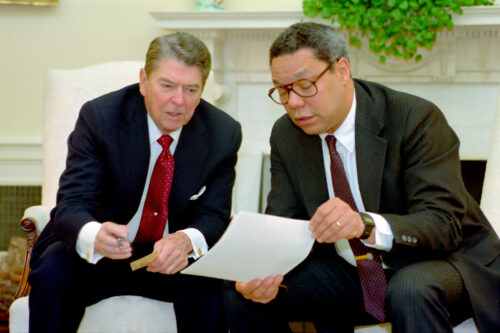
Reagan meeting on the Persian Gulf with National Security Advisor Powell April 1988 (Wikimedia Commons)
He then became secretary of state for President George W. Bush in January 2001 until January 2005, remaining on the job for nearly two full years after Iraq was ripped part.
Powell is not known to act from conscience or to buck authority. As a young U.S. Army Major serving in Saigon, during the Vietnam War, Powell was asked to investigate a letter written by a soldier of conscience who was reporting on a massacre perpetrated by U.S. soldiers in the village My Lai. Powell concluded in writing that, “In direct refutation of this portrayal is the fact that relations between American soldiers and the Vietnamese people are excellent.”
When he was asked about this a year after the Iraq invasion, on May 4, 2004, by interviewer Larry King, Powell said: “I mean, I was in a unit that was responsible for My Lai. I got there after My Lai happened. So, in war, these sorts of horrible things happen every now and again, but they are still to be deplored.”
What If?
Draper provides a very useful speculation of what might have happened had Powell resigned rather than go to the Security Council:
“Because of its long shadow, the U.N. speech invites one of the Bush presidency’s most poignant what-ifs. What if that same voice that publicly proclaimed the necessity of invading Iraq had instead told Bush privately that it was not merely an invitation to unintended consequences but a mistake, as he personally believed it to be? What if he had said no to Bush when he asked him to speak before the U.N.? Powell would almost certainly have been obligated to resign, and many if not all of his top staff members involved in the Iraq issue would also have quit; several had already considered doing so the previous summer.
If the State Department’s top team had emptied out their desks, what would Powell’s close friend [UK Foreign Secretary Jack] Straw have done? “If Powell had decided to resign in advance of the Iraq war,” Straw told me, “I would almost certainly have done so, too.” Blair’s support in the Labour Party would have cratered — and had Blair withdrawn his support for war under pressure from Parliament or simply failed to win an authorization vote, the narrative of collapsed momentum would have dominated the news coverage for weeks. Doubters in the upper ranks of the American military — there were several — would have been empowered to speak out; intelligence would have been re-examined; Democrats, now liberated from the political pressures of the midterm elections, would most likely have joined the chorus.
This domino effect required a first move by Bush’s secretary of state.”
Had he resigned and denounced the intelligence as fraudulent, would the media have been turned against the war? Cheney told him he was the most popular man in America.
Powell’s response to this possible scenario was:
“But I knew I didn’t have any choice,” Powell told me. “What choice did I have? He’s the president.”
“I’m sort of not the resigning type,” [former British Foreign Secretary Jack] Straw said. “Nor is Powell. And that’s the problem.”
“He’s the president,” and he wanted regime change.
It is the public in Iraq and the United States who need answers, not Colin Powell.
Joe Lauria is editor-in-chief of Consortium News and a former U.N. correspondent for The Wall Street Journal, Boston Globe, and numerous other newspapers. He was an investigative reporter for the Sunday Times of London and began his professional work as a stringer for The New York Times. He can be reached at joelauria@consortiumnews.com and followed on Twitter @unjoe .

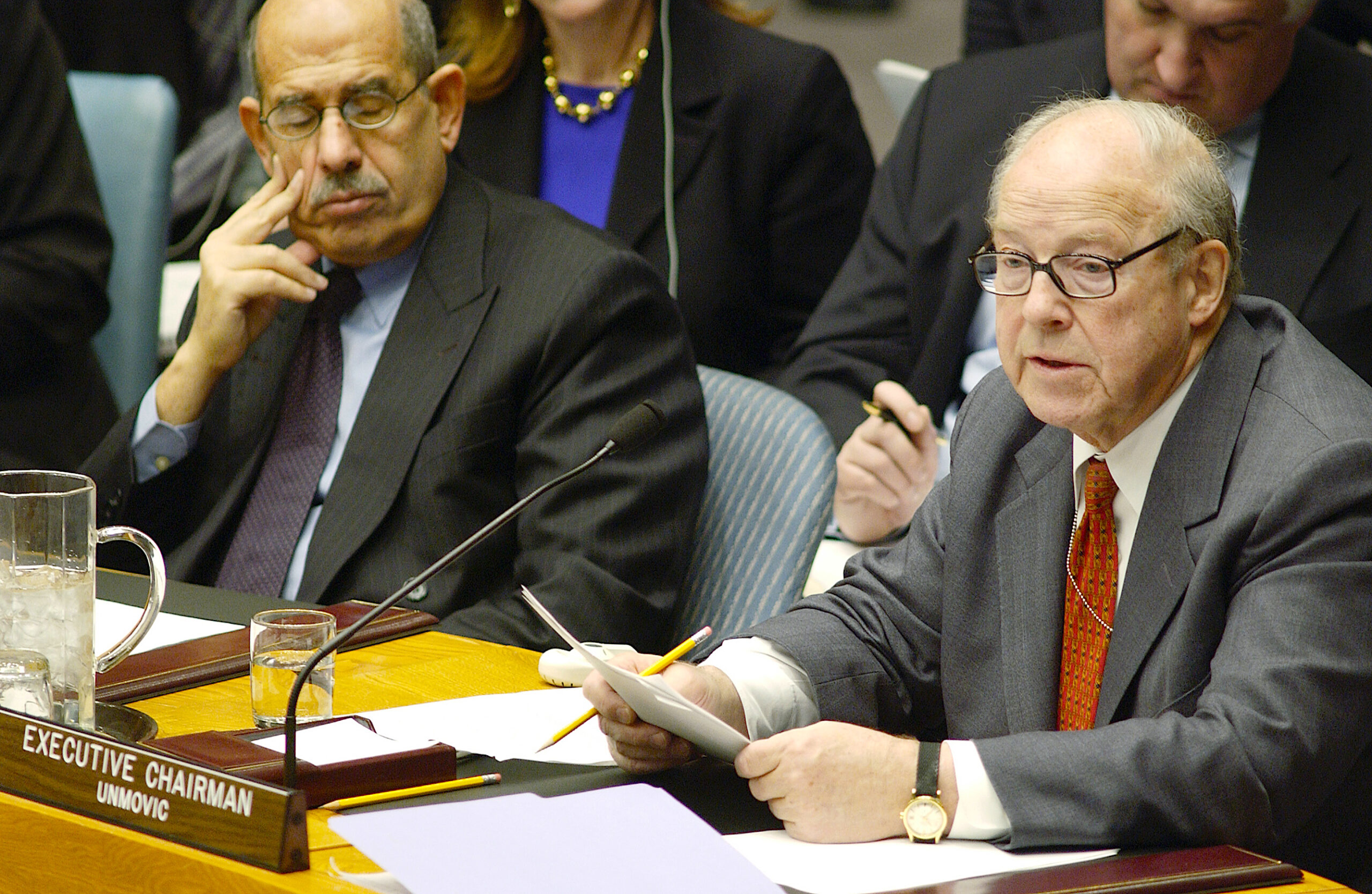
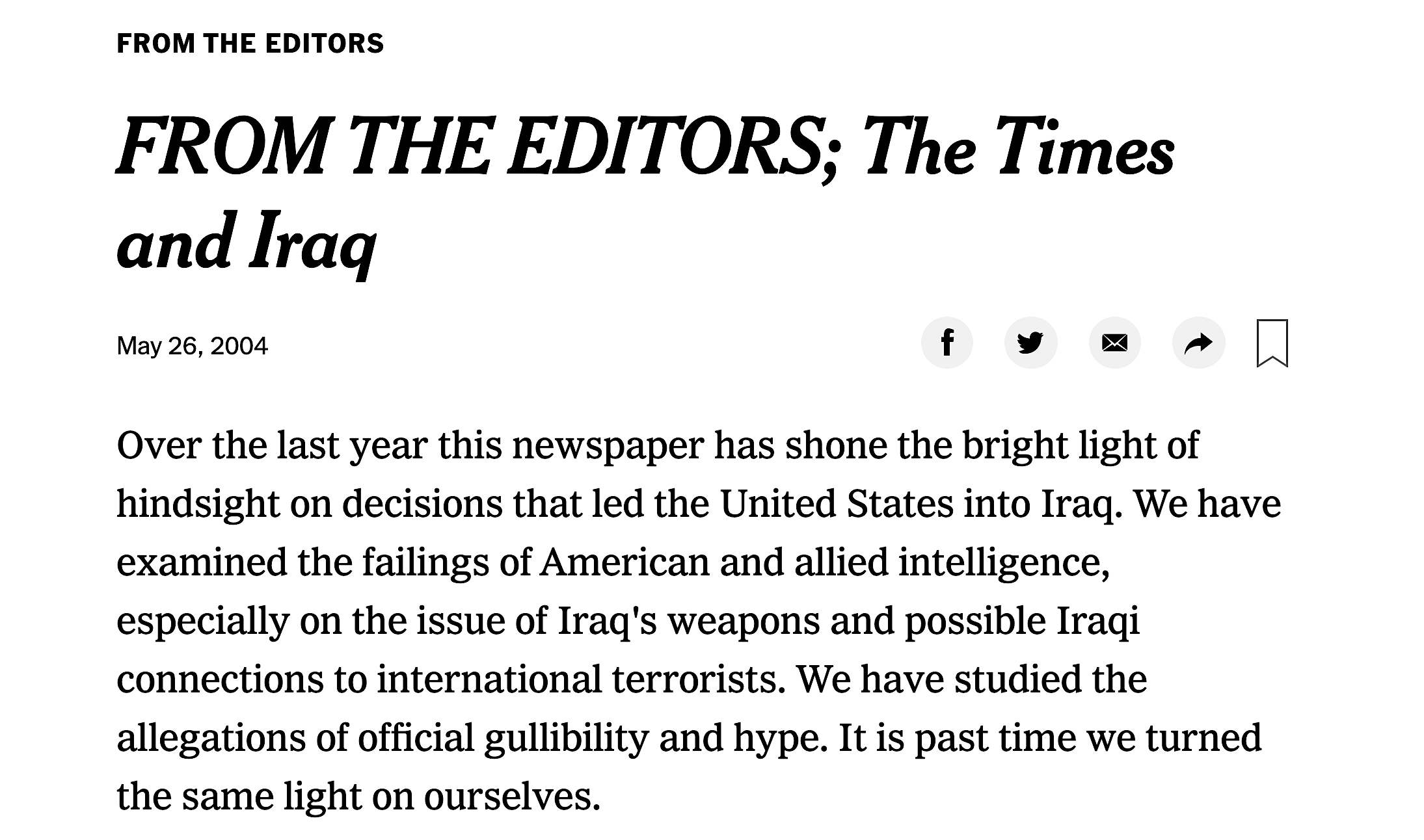
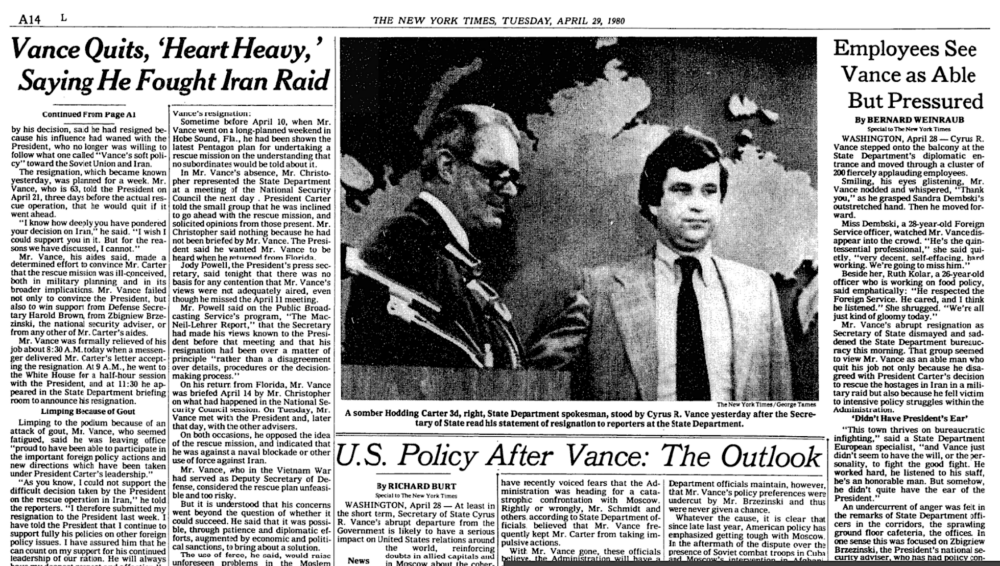
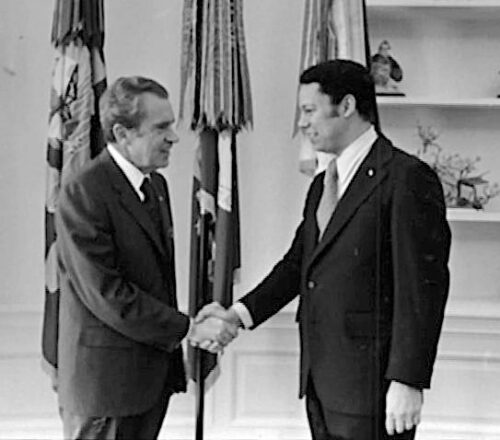
“But, Powell has been subservient to presidents, in a variety of ways.”
Momma called it: “Colin Powell, el número uno, “Apple Polisher.” Taking the U.S., to war b/c “some Cowboy from Texas wants to $tart his own war, in Iraq?!?” Against people, we don’t even know.” I, agreed. wtf, Mr. S.O.S.?
“This domino effect required a first move by Bush’s secretary of state.” IF, he’d only used all his power to blow the whistle. To “Just Do It!” The Right Thing. Own It. Do It. Done! BUT. BUT. BUT, “Had he resigned and denounced the intelligence as fraudulent, would the media have been turned against the war? “NO.”
“Cheney told him he was the most popular man in America.” Eek! Powell wouldn’t jeopardize that, “the MOST popular MAN in America?!?”
And, Jeopardy, is a MOST popular Game $how: The category: “Idols of War.” For the WIN, “What one Dick said to the other?” Hear all about ‘em, Idols of War. Tune in & Crank It Up! Hedges’, “Smashing The Idols of War.” In joy, hxxps://consortiumnews.com/2023/02/22/chris-hedges-smashing-the-idols-of-war/
Many People know “when to fold ‘em. Know when to walk away. Know when they’re done!” Sad but true, the U.S.’ S.O.S., blew off the clues that he “held the whole world in his hands” had NOTHING to do w/his popularity. It was about Integrity. Discernment. Balls. He shoulda, woulda, coulda “blown the whistle!!!” For example,“You, who, want war? Times Up! It’s ain’t happening!!! Book “Em, Mr. Marshall. The Universe agrees, “Hold ‘Em, Accountable.” An Act of War, is “the Wolf, @ the door, who fears there will be blood in the streets. The Fox knows, he’s got blood on his hands.”
“Powell’s response to this possible scenario was:”
—— “But I knew I didn’t have any choice,” Powell told me (Jack Straw). “What choice did I have? He’s the president.”
“WHEN YOU HAVE TO CHOOSE; AND, YOU decide NOT to choose. YOU have already made the wrong choice.”
____ “I’m sort of not the resigning type,” [former British Foreign Secretary Jack] Straw said. “Nor is Powell. And that’s the problem.”
In the U.S., it’s called, living within, ughhh, “HERD IMMUNITY” – A typical, rabid, right-wing technique “driven to co-opt, penetrate, gain favor,” whatever it takes, to suck in the Con$umer and buy the lie or the whole package of lies used to occupy “your” mind & the Middle East. The USG’s ‘War on Terra’ was all about making liberty, freedom, Democracy, reign in Iraq, like in the Wild, Wild, West!
“He’s the president,” and he wanted regime change.” Likewise. Joey “Patriot Act” Biden has the same West dream. POTUS does the yapp’n, “Go Get Him!” Congress does the clap’n. It’s wholly f/wrong!!!
IF, “the public in Iraq and the United States” had the power to “Freeze the Muckity-Muck$’ Assets, Book ‘Em, Hold ‘Em w/o Bail, in the World’s largest U.S. Embassy, in downtown Baghdad, Iraq; &, Prosecute, to the fullest extent! No Exceptions. Would “we?” No way this resolution “lives;” but, Living Free is a Gaggle of Powells. “They Live!” above & under ground. Btw, Saturday, 3.22.23, is Earth Day, “For the benefit of the flowers, water the thorns, too.”
Onward & Upwards. TY, Joe Lauria & CN for keeping it “REAL” & always “Rockin the Truth!” Keep it Lit. Ciao.
“In the U.S., it’s called, living within, ughhh, “HERD IMMUNITY” ”
Or “HERD MENTALITY” as coined by donald dump.
“Good Call!!! Valerie. TY.
“The Donald’s,” influence, “lives!” HERD MENTALITY partnering w/SENILITY has brought U.S., to the brink of World War Three (3).
“Trump provides the daily entertainment; the elites handle the business of looting, exploiting and destroying.“
“The Useful Idiocy of Donald Trump,” Chris Hedges/Mr. Fish, JANUARY 28, 2018 hXXps://www.truthdig.com/articles/useful-idiocy-donald-trump/
“The problem with Donald Trump is not that he is imbecilic and inept—it is that he has surrendered total power to the oligarchic and military elites. They get what they want. They do what they want.”
“Trump, who has no inclination or ability to govern, has handed the machinery of government over to the bankers, corporate executives, right-wing think tanks, intelligence chiefs and generals. They are eradicating the few regulations and laws that inhibited a naked kleptocracy. They are dynamiting the institutions, including the State Department, that served interests other than corporate profit and are stacking the courts with right-wing, corporate-controlled ideologues. Trump provides the daily entertainment; the elites handle the business of looting, exploiting and destroying.”
3.22.23, The FUTURE Is HERE, “It is a road that leads to internal collapse and tyranny, and we are very far down it.”
“Once democratic institutions are hollowed out, a process begun before the election of Trump, despotism is inevitable. The press is shackled. Corruption and theft take place on a massive scale. The rights and needs of citizens are irrelevant. Dissent is criminalized. Militarized police monitor, seize and detain Americans without probable cause. The rituals of democracy become farce. This is the road we are traveling. It is a road that leads to internal collapse and tyranny, and we are very far down it.” CHRIS HEDGES, 1.28.18
”The Useful Idiocy of Donald Trump,” remains my #1 “Go To!!!” To know the what, why, & how “we” got, here. Onward & Upwards, Valerie. TY.
…p.s. Saturday, APRIL 22, 2023 is EARTH Day. “Every year on April 22, Earth Day marks the anniversary of the birth of the modern environmental movement in 1970’” For the benefit of the flowers, water the thorns, too. Keep It Lit!
Were he alive today, he too should stand at ICC…with the rest of them.
Colin Powell was always a lackey, carrying water for the war industries and happily being touted as the first black this or that. Like his “bro” Barack Obama.
Following orders causes the banality of evil according to Hannah Arendt’s coverage of the Nuremburg Trials.
I would like to include this poignant poem by the Iraqi poet and novelist, Sinan Antoon. It’s included in an article he wrote entitled “A million lives later, I cannot forgive what American terrorism did to my country, Iraq”
“In Cairo, I watched as the US began its “shock and awe” campaign – a terrifying rain of death and destruction on Baghdad. Poetry was my refuge and the only space through which I could translate the visceral pain of watching the violence visited on Iraq and seeing my hometown fall to an occupying army. Some of the lines I wrote in the early days of the invasion crystallise my melancholy:
The wind is a blind mother
stumbling
over the corpses
no shrouds
save the clouds
but the dogs
are far quicker
The moon is a graveyard
for light
the stars are women
wailing.
Tired from carrying the coffins
the wind leaned
against a palm tree
A satellite inquired:
Whereto now?
The silence
in the wind’s cane murmured:
“Baghdad”
and the palm tree caught fire.
(Mr. Antoon is the author of the book “The Book of Collateral Damage”.)
Oh, a truism poem—–
Biden leans against a tree, and most probably, the tree is not the only thing to catch fire. : (
In the beginning, i gave Biden the benefit of the doubt. Everything has been revealed. There is no doubt now.
Nothing changes.
The firing of Joe Lauria by Southam News at the start of the U.S.-led war in Iraq is not surprising. Already on September 1, 2001 the Globe and Mail reported on the resignation of The Gazette publisher, Michael Goldbloom, quoting him as saying that CanWest, which had acquired The Gazette, The Ottawa Citizen and several other Southam papers “has a more centralized approach to its management, and there are some aspects of the operations where we have had different perspectives.”
According to the Globe, sources at The Gazette confirmed that senior editors at the paper were to carry a strongly worded, pro-Israel editorial on a Saturday op-ed page. “Winnipeg’s Asper family, CanWest’s controlling shareholder, is known for its hawkish views on the Israeli-Palestinian conflict,” the Globe reported.
When Canadian Prime Minister Jean Chrétien seemed less than enthusiastic about supporting U.S. President George Bush’s moves toward war with Iraq the Citizen gave great prominence, September 27, 2002, to an article attacking Chrétien, reprinted from the Wall Street Journal, by Marie-Josée Kravis. She began, tendentiously, with “Why is Jean Chrétien so intent on finding a justification for terrorism?”
The headline screamed in large type “Canada’s Schroeder,” referring to a German politician accused of anti-Semitism. The story identified Kravis as “born and raised in Canada” and “a senior fellow at the Hudson Institute.”
No mention was made of Kravis being the wife of billionaire Henry Kravis, a large contributor to the Republican Party, or of the fact that in May she was co-chair of a black-tie gala, toasting President George W. Bush and raising more than $30 million for the Republican National Committee on May 14, 2002.
Being a wily politician, Chrétien managed to secure a banner front-page headline with a picture of smiling Chrétien next to smiling Henry Kissinger, in the Globe and Mail Oct. 2, 2002. He seemed to endorse the Bush initiatives. But what he said was that Canada could comply with military support for an attack on Iraq if “Saddam Hussein fails to comply with proposed tougher UN resolutions on weapons inspections.”
I just read in Wikipedia that on November 2019, Postmedia, the present owner of the some of the papers previously owned by the Southam chain, is now 66% owned by the American media conglomerate Chatham Asset Management and that it “is known for its close ties to the Republican party.” I do not see this as a change for the better!
There was a by-line boycott at the time by journalists at CanWest after the decision to centralize editorial writing across the chain’s many newspapers.
This retired guy… fairly Apolitical during the run-up to Military Intervention in Iraq… Quite grateful to CN & Joe for my continuing WarPol education.
Saw what was obvious: Down the Towers… Pentagon & Pa Air Wrecks etc.
Surely it must be councidental ANTHRAX killed a postal worker… and much of Congress’s Opposition to mentioned Intervention… so soon before the USA Patriot Act PASSED!
Truly sad to quote the classic: “Something’s rotten in the State of Denmark.”
Run or not… As 1 comment today… Read full article comment will be Reminder Why Tom Daschele “Retired”… & SUBSTANCE KILLED POSTAL WORKER NOT THIS ONE
It is interesting to see that the French government was not yet fully subservient to the US empire in 2003.
But what really comes across from de Villepin’s speech is the arrogance that the Euro-American gangsters all have in common.
Who gave them the right to decree that Iraq must be disarmed, by force if necessary?
“We order you to disarm so that you will be defeseless when we invade you. If you defy this order you will regret it!”
The U.N. Security Council resolution that created the ceasefire in the 1991 Gulf War mandated that Iraq be disarmed of WMD. That’s what UN inspectors had been doing for 12 years. At the time of the 2003 invasion there was no evidence Iraq had any WMD left. The UN inspectors said they needed more time to keep looking but the US couldn’t wait. After the invasion it was confirmed that there were no WMD in Iraq.
Perhaps my comment about de Villepin’s speech to the Security Council was unclear. Why did I say that it typifies the arrogance that the French imperialists share with the UK, USA, etc? He began by saying that of course Iraq must be disarmed — not just their supposed nuclear and chemical weapons but even their scud missiles (see Ritter’s article above.) Notwithstanding his lofty words, his message could be heard clearly: Iraqis must not be allowed the means to defend themselves, neither against the decade-long US bombing and blockade that they were already enduring, nor against the invasion that the US was preparing. In his article, Ritter explains that it was all along about regime-change. Who in retrospect could disagree?
France did not however vote to authorize the invasion.
True enough. In that instance America was the “greater evil” and France was the “lesser evil”.
In such circumstances, it’s always the path of least resistance that looks preferable. In hindsight, not so much. With deadly consequences for the voiceless.
It’s noteworthy that on the week of the 20th anniversary of one of the most disgusting crimes against humanity, our powers-that-be are set to perp walk Trump — definitely an imperfect president, no doubt, yet the only one over the past 35 years who did not start a major military conflagration.
This confluence of events being the case, we better also see Cheney, Bush Jr, Clinton, Obama, and Biden behind bars for the rest of their lives for all the buckets of blood they’re drenched in. Throw in their top foreign policy advisors and rabid media lapdogs too. Let’s go, round ’em up.
Please do.
As soon as I pay off my massive student loan debt someday and get together my posse, it’s on baby!
I’ll be part of your posse Drew. (But need to learn to ride a horse first.) LOL
So do I.
Your list of war criminals is indeed a good start. Though I don’t think we should let Mr Trump off quite so easily. He did very little to effectively end our exploitation of Iraq, Syria and Afghanistan nor did he put the brakes on the military aid going to Ukraine (remember his little arms for favors stunt). True, he did not start any new fires, but then, most of the sandbox was already burning.
Trump didn’t start any major wars, which is worth a little something. Sending cruise missiles into Syria was heinous and he should definitely be punished for that.
Trump did blow up the Iranian Solemani , and others in the Iraqi airport. Is Trump’s ego big enough to blow himself up—I think so.
Yes Casey, that was a disgusting crime against international law. But not as malevolent as a major war (though very potentially dangerous).